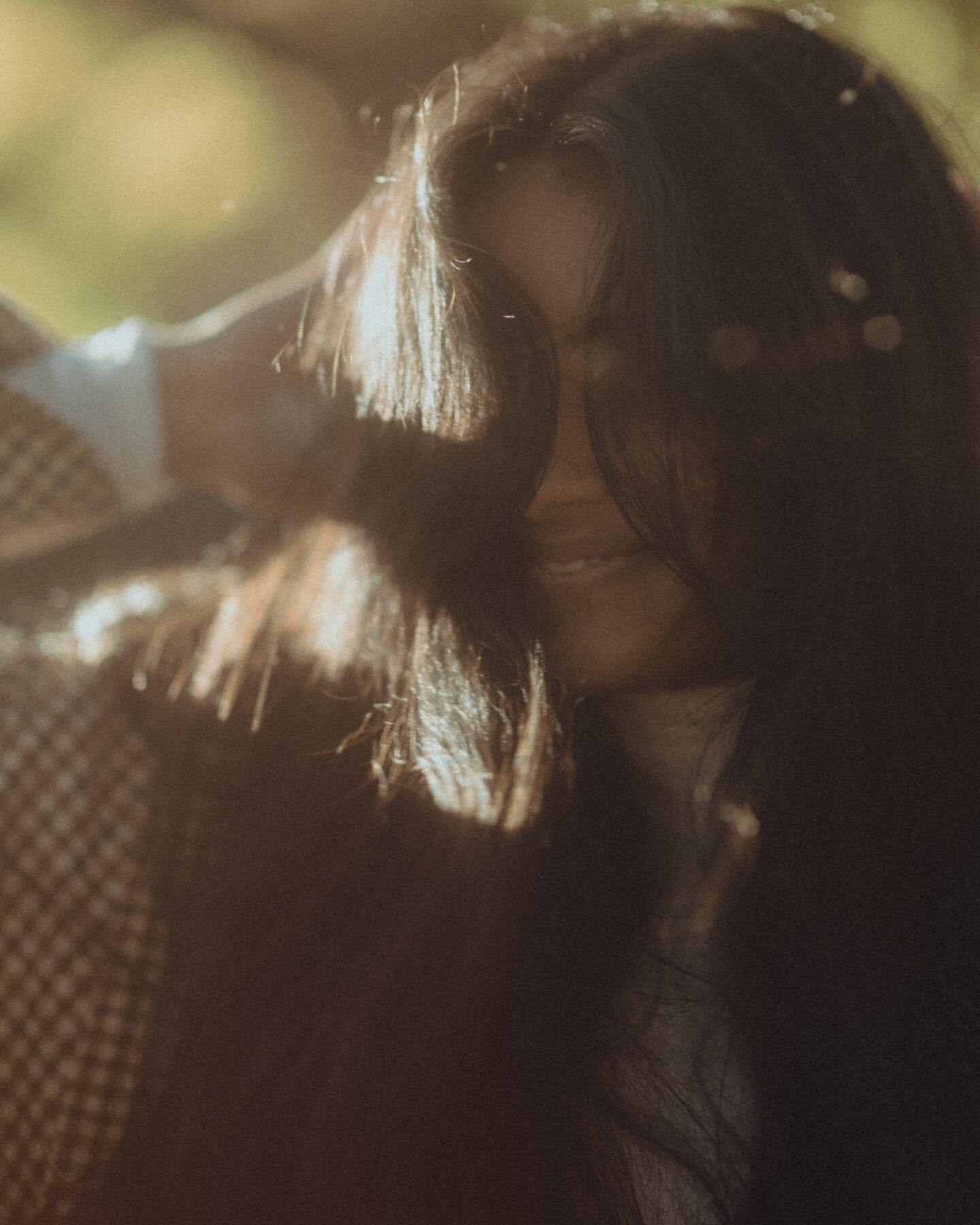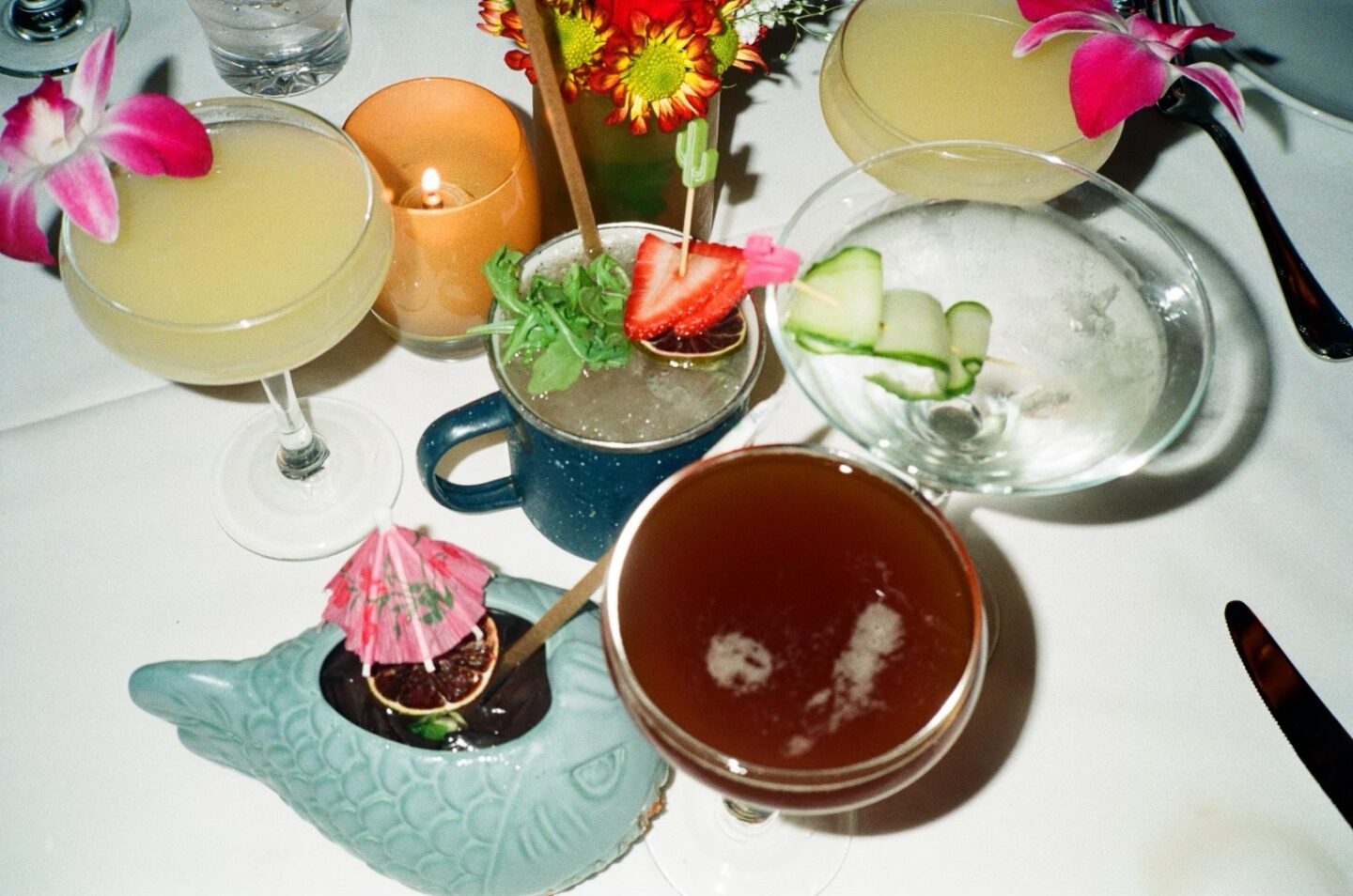
There’s a lot of work that goes into maintaining my mental wellbeing all year round. Between the depression, the ADHD, and the inevitable burnout that follows working a full wedding season, I’d say I’m pretty high maintenance. During the winter, that changes pretty significantly – as in, I need to put in significantly more work to feel somewhat normal during this time of year.
This is due to several factors, but the major ones I can pinpoint: fewer daylight hours (funky sleep schedule, seasonal depression), friends and loved ones all having different schedules during the holidays, the increased financial pressure that comes with end-of-year activities, and colder weather adding an extra set of obstacles to going outside and getting fresh air.
This winter, I’ve been doing a little more research and trying some things differently. Maybe it’s just the exhaustion of dealing with depression for 11 years in a row, or the fact that I’m not going home for the holidays ($900 plane tickets from New York to California… a joke), but I felt like trying something new. I don’t want to jinx it, but to some degree, these things have been helping me stay at a baseline mood that’s much more tolerable than my usual winter blues. So I’m sharing them here in case you want to try them too (with your psychiatrist’s or doctor’s blessing). Or don’t. No pressure.
Before we jump in, I just want to provide a disclaimer that I’m not a medical care provider, and none of the following statements have been reviewed by a mental health care provider. The information in this post is not intended to replace the advice of a trained professional. These statements are based on my own personal experience, and what works for me may not work for others. Please consult your psychiatrist, therapist, physician, or other members of your care team before making any changes to your routine, especially if you’re already taking medication.
Experimenting with Sobriety

Okay let’s jump right in. I was listening to a Huberman Labs podcast on Alcohol and what it does to your brain that my friend recommended. If you’re interested, give it a listen; I found the portion on the effects of alcohol on the brain, and its subsequent effects on mood, very interesting. It inspired me to start spending more time not drinking.
I didn’t consider myself someone who drank very often, but I realized that since starting drinking towards the end of high school, I haven’t given myself too long a break (especially in my days at a party school for university). This year, before embarking on this experimental journey, I would often grab a glass of wine or a cocktail while out with friends for dinner. I would typically stop at the airport lounge to grab a mimosa when traveling for leisure. On the weekends, I would usually have one night of drinking – whether that was one of those aforementioned dinners, or a night partying with 4 drinks. Overall, even having slowed down significantly in my alcohol intake over the years, I would say I averaged two drinks per week.
My fiancé and I decided to do 30 days completely sober together this past summer. I’ll admit, it was much more difficult than I thought it would be. While visiting my family, I felt very tempted to say “yes” when offered a glass of wine at game nights. When my friend – the same one who recommended the podcast – got engaged, I found it difficult to not drink in celebration. When the 30 days were up, my friends encouraged me to take it slow. Don’t continue to restrict yourself so you’re tempted to abandon your efforts, they said, but instead try to have a night out, and stop again for a week or two to see how it felt. So I did. And in time, I felt it became easier and easier to say no to a drink on any occasion. I even started to feel like I was better at socializing without alcohol, something I never would have believed a few months prior.
As I write this, I’ve unintentionally completed another 30 days without alcohol, after a few months of having 2-3 drinks per month. This part is entirely unscientific and probably not real, but I almost feel like I can feel my brain healing a little bit. Overall, I feel like my mood is a bit lighter without alcohol’s depressant effects, and I enjoy never having to deal with a hangover.
The takeaway: not drinking alcohol makes me feel good and is hopefully repairing some of the damage it’s caused to my brain over the years. 10/10 would recommend.
Taking an Omega 3-6-9 Supplement

Typically, I try to start taking Vitamin D towards the end of August to start counteracting the effects of seasonal depression that I experience during the winter. This year, however, I decided to add an additional supplement to my routine.
My mom has touted the benefits of Udo’s Oil, a vegan oil blend meant to do what fish oil does: provide a blend of Omega 3, 6, and 9 fatty acids. She takes a tablespoon every day before bed, and tells me it helps her with sleep, appetite regulation, and her skin. All amazing things, but not enough to motivate me to actually buy it and take it every day, until I read this study about the benefits of Omega 3’s in treating depression. I took the subway to Whole Foods, bought a bottle, and have been taking a tablespoon every night since – I’m actually due for a new bottle soon, two months later.
I shared about this on my Instagram story, but I feel like this change has made a big difference in my overall mood and wellbeing. I wake up with a little less dread than usual, I find it less arduous to do tasks to take care of myself, and I can feel a marked difference in my mood when I don’t take it for a day. I feel like the change has been significant enough that I don’t see myself stopping any time soon.
I know I sound like a broken record saying this, but I can’t stress enough how important it is to check in with your own doctors and care team before adding anything to your routine. While this supplement has studies backing its efficacy with depression, other sources like this article by an MD-PhD contributor at Harvard Medical School warn that it may induce mania in people with bipolar disorder. As always, what works for me might not work for others.
The takeaway: This supplement has been helping me with managing my moods so far this winter, and has become an important part of my routine.
Reducing my (Phone) Screen Time

I’ll be honest, this one is really difficult for me. My screen time is much, much higher than I’d like to admit, and I know from past research that the apps on our smartphones are usually designed to give us hits of dopamine so we continue to use them. I personally use my phone as a crutch to avoid processing difficult feelings, or to avoid feeling boredom in between daily tasks, a habit I’d like to break. I decided to lower my screen time in efforts to: 1. spend more time doing things I enjoy instead of doom scrolling, 2. help my body adjust to not getting instant gratification from my phone usage instead of other more meaningful tasks, and 3. not feel embarrassed when people ask me what my screen time is.
This process has not been easy. I definitely think I have some sort of phone addiction – it doesn’t help that I have very blurred boundaries between using my phone for work (social media, texting clients, planning our company’s instagram feed) and personal (playing ludo online, texting, and doom scrolling). I’ve started with a goal of cutting my screen time in half, which I’ve done so far these first 7 days. I’ve completed a 1000 piece puzzle, read a novel cover to cover and started a new one, watched 3 Bollywood movies, planned the next 75 Instagram posts for my wedding planning business (on my computer), and written this blog post with all the extra time I’ve had.
Though the process has drawn an uncomfortable amount of attention to how often I reach for my phone, I feel like I’ve been getting more out of my days, going outside more often, and been more present while spending time with friends. All of those things significantly help with my depression, and help me feel better on the day to day. Besides my mood, my focus and productivity has also improved, which helps me feel accomplished at the end of each day. As for the amount of discomfort I feel not leaning on my phone as often – I’m hoping this will lessen with time, but I definitely plan to bring my therapist in on the process if it doesn’t.
The takeaway: reducing my screen time has helped me do more things that make me feel better, but the process had shown me I likely struggle with some level of phone addiction.
When you’re depressed, building something new into your routine can feel like an insurmountable challenge. After seeing the difference these changes have made on my mood this winter season, I’m so happy I pushed myself to try them. If you’re interested in trying something different to manage your mental health, I would definitely encourage you to check in with your doctor or care team about making some of these changes.
Have you implemented any of these habits in your wellness regimen? How did you feel before, during, and after adding them to your routine? Let me know in the comments below!